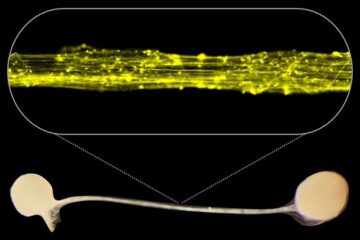New Research Shows Just How Much We Hate Winners

New research by economists at the Universities of Warwick and Oxford has provided surprising information on just how much people hate a winner. It also shows what lengths human beings are prepared to go to damage a winner out of a sense of envy or fairness.
The researchers, Professor Andrew Oswald of the University of Warwick and Dr Daniel Zizzo of Oxford, designed a new kind of experiment, played with real cash, where subjects could anonymously “burn” away other people’s money – but only at the cost of giving up some of their own money. Despite this cost to themselves, and contrary to economists’ usual assumptions, 62% of those tested chose to destroy part of other test subjects’ cash. In the experiment, half of all the laboratory earnings were deliberately destroyed by fellow subjects.
Everyone in the laboratory sessions was anonymous and hidden. The subjects had only a computer terminal, into which they played, and in which they could see how much other people were winning.
In each session, the test subjects began with a betting stage which gave them some money (about 10 pounds but sometimes much more) creating an unequal wealth distribution.
In the final stage, the “burning” stage, subjects could if they wished eliminate (“burn away”) other people’s money – but only by giving up some of their own cash winnings. At the most expensive level, they had to give up 25 pence to destroy 1 full pound owned by someone else. It was made clear to the subjects that burning others would reduce the cash of the person choosing to burn.
The economists expected little burning, and especially that the laboratory subjects would stop destroying other people’s money once the price reached 0.25, but in fact they found that even this high price did little to stop people annihilating other people’s wealth. Most individuals still chose to hurt others, despite the large cost to their own pocket.
The researchers found that those given who gained the most additional money at the betting stage, burned poor and rich alike , however disadvantaged laboratory subjects mainly targeted those subjects that they saw getting what they perceived as undeserved financial windfalls. The authors concluded that “our experiment measures the dark side of human nature”.
Media Contact
All latest news from the category: Interdisciplinary Research
News and developments from the field of interdisciplinary research.
Among other topics, you can find stimulating reports and articles related to microsystems, emotions research, futures research and stratospheric research.
Newest articles

Caution, hot surface!
An international research team from the University of Jena and the Helmholtz Institute Jena are demystifying the mechanisms by which high-intensity laser pulses produce plasma on the surface of solids….

Exploring the Asteroid Apophis With Small Satellites
In five years’ time, a large asteroid will fly very close to Earth – a unique opportunity to study it. Concepts for a national German small satellite mission are being…

First model of the brain’s information highways developed
Our human brain is not only bigger and contains more neurons than the brains of other species, but it is also connected in a special pattern: Thick bundles of neurons…





















